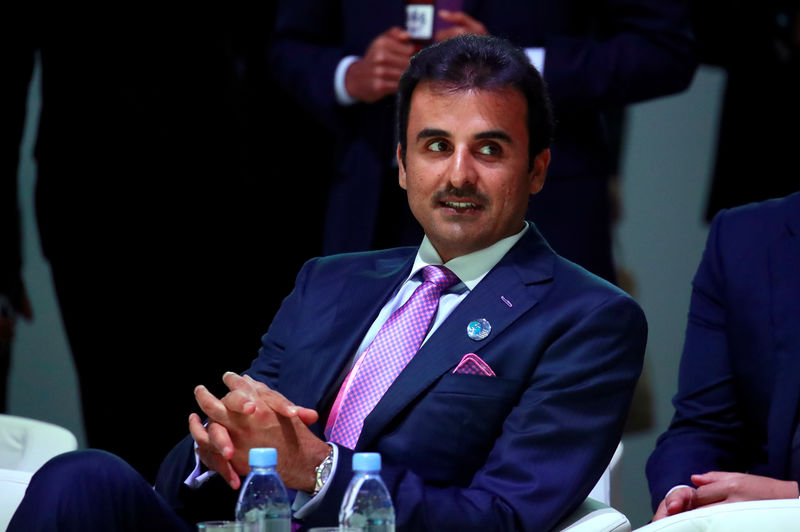DOHA (Reuters) - Qatar's emir, Sheikh Tamim bin Hamad Al Thani, has received a written invitation from Saudi Arabia's King Salman to attend an annual Gulf Arab summit being held in Riyadh on Dec. 9, the Qatar News Agency said on Tuesday.
Qatar is locked in a bitter dispute with Saudi Arabia that has fractured the six-nation Gulf Cooperation Council (GCC) and it has not said what level of representation it will send to the gathering of heads of state seen by analysts as unlikely to bring a diplomatic breakthrough.
Saudi Arabia, the United Arab Emirates, Bahrain and non-GCC member Egypt have imposed diplomatic, trade and transport sanctions on Qatar since June 2017, accusing it of supporting terrorism. Doha denies the charge.
At last year's GCC summit, held in Kuwait, Saudi Arabia, the UAE and Bahrain sent ministers or deputy prime ministers, rather than heads of state.
The invite from the Saudi king comes a day after Qatar abruptly announced it was quitting OPEC after 57 years to focus on gas in an apparent swipe at the oil-producing bloc's de facto leader Saudi Arabia.
Doha's exit from OPEC has deepened the sense among diplomats and analysts that any prospect for a near-term resolution to the Gulf row was unlikely to come at the summit in Riyadh.
"I'm sure this summit will not bring any change," said Mahjoob Zweiri, director of the Gulf Studies Center at Qatar University.
Saudi Arabia and the UAE have repeatedly said that the dispute was not a high priority for them, and Qatar's foreign minister said last month he saw no thaw.
At an Arab League summit in Riyadh last April Qatar did not send a senior official and its delegation was headed instead by its permanent representative to the Arab League.
The row has defied mediation efforts by Kuwait and the United States which sees Gulf unity as essential to efforts to contain Iran.

The GCC was founded in 1980 as a bulwark against bigger neighbours Iran and Iraq, but the protracted row has undermined its role in regional affairs.